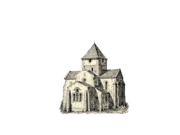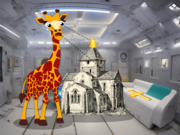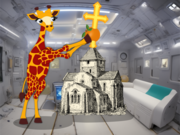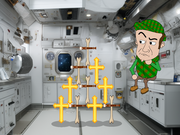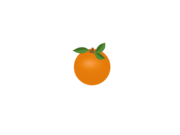古
ancient / old / paleo-
古
=
十
+
口
:
Mnemonic symbol: at least on German maps, this character actually resembles a cloister.
Oh no! Gitta Giraffe (gu) found that the golden cross (十) broke off of the cloister (古) in the space station's living room (Ø3)! She skewers a mandarin (口) on top of the cloister so that she can skewer the broken off cross back on to fix it.
Oh no! Gitta Giraffe (gu) found that the golden cross (十) broke off of the cloister (古) in the space station's living room (Ø3)! She skewers a mandarin (口) on top of the cloister so that she can skewer the broken off cross back on to fix it.
古 character breakdown
Characters with 古 as component
happening / instance / reason / cause / intentional / former / old / friend / therefore / hence / (of people) to die, dead
故
=
古
+
攵
:
There is an ancient cloister in the space station's bathroom, and Gitta Giraffe once heard a story from her fellow astronauts that there's an old tomb inside with lots of treasure. One day she can't hold herself back anymore and deliberately breaks the cloister open using a sledgehammer.
to be able to / to subdue / to restrain / to overcome / gram / Tibetan unit of land area, about 6 ares
Ke (c. 2000 BC), seventh of the legendary Flame Emperors, 炎帝[Yan2 di4] descended from Shennong 神農|神农[Shen2 nong2] Farmer God
abbr. for 克羅地亞|克罗地亚[Ke4 luo2 di4 ya4], Croatia / (Tw) abbr. for 克羅埃西亞|克罗埃西亚[Ke4 luo2 ai1 xi1 ya4], Croatia
non-Han people, esp. from central Asia / reckless / outrageous / what? / why? / to complete a winning hand at mahjong (also written 和[hu2])
to give up / to abandon / to give alms
舍
=
人
+
舌
:
Mnemonic symbol: a pawn who is abandoned to save the king.
Neanderthal Man (人) is so hungry that he opens his mouth, sticks out his tongue (舌) and is about to devour Sherlock Holmes (sh) in the elevator (e3), but Sherlock Holmes acts quickly enough to throw a pawn (舍) onto Neanderthal Man's tongue so that he munches the pawn instead.
Neanderthal Man (人) is so hungry that he opens his mouth, sticks out his tongue (舌) and is about to devour Sherlock Holmes (sh) in the elevator (e3), but Sherlock Holmes acts quickly enough to throw a pawn (舍) onto Neanderthal Man's tongue so that he munches the pawn instead.
Words with 古
medieval / Middle Ages / Chinese middle antiquity, 3rd to 9th centuries, including Sui and Tang Dynasties / Middle (of a language, e.g. Middle English) / used / second-hand
unchanging since times immemorial (idiom) / unalterable / unvarying / monotonous
Sentences with 古
古 currently does not appear in any sentence.
